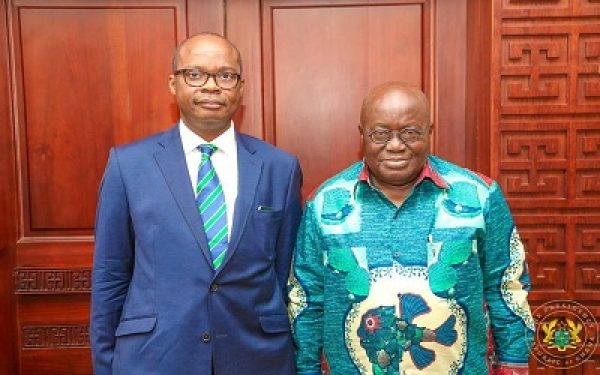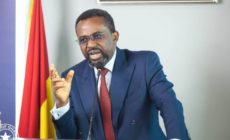demanded that such funding be eliminated.
The major commodities exporter signed the three-year deal in April 2015 to restore fiscal balance to an economy dogged by high deficits, widening public debt and inflation.
Addison said Bank of Ghana did not finance the deficit last year, although the current law allows limited funding. “We are staying on course… we do not expect that we’d have a situation where the government will come for financing from the central bank,” he told reporters in Washington on the sidelines of this year’s IMF Spring meetings.
The government of President Nana Akufo-Addo, inaugurated in January, has outlined plans to restore fiscal balance, spur growth and create jobs driven by the private sector.
Addison, who assumed office this month, said he would pursue price stability and ensure the alignment of central bank’s policy rate with interbank rates by adopting a better transmission system.
“We think that inflation-targeting has worked for Ghana. It’s effective and once the appropriate conditions are in place, we expect that the framework will provide the guidance for us to implement our monetary policy objectives,” said Addison who previously worked as chief economist at the African Development Bank.
The central bank is on track to meet its 2017 inflation target of 11.2 percent towards the government’s medium-term vision of single digit inflation at 8 percent plus or minus 2 percent spanning 2018-19, he added.
Addison said he expects Ghana’s cedi to sustain its recent stability against the dollar, supported by the government fiscal policy, improvement in export earnings and reduction in import bills.
He said Bank of Ghana had written to some troubled commercial banks that defaulted on loans from the central bank and asked them to recapitalise.
“We are waiting to look at the recapitalisation plans. It has to be credible and we’re hoping that in the next few weeks … some decisions will have to be taken,” he said without giving details.
-Reuters











 (Selorm) |
(Selorm) |  (Nana Kwesi)
(Nana Kwesi)